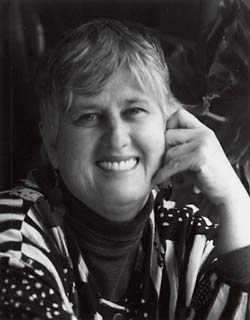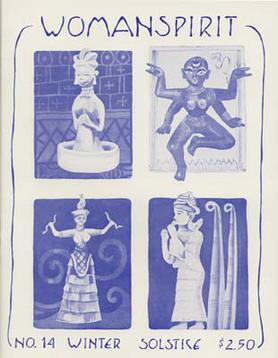
Lesbian feminism is a cultural movement and critical perspective that encourages women to focus their efforts, attentions, relationships, and activities towards their fellow women rather than men, and often advocates lesbianism as the logical result of feminism. Lesbian feminism was most influential in the 1970s and early 1980s, primarily in North America and Western Europe, but began in the late 1960s and arose out of dissatisfaction with the New Left, the Campaign for Homosexual Equality, sexism within the gay liberation movement, and homophobia within popular women's movements at the time. Many of the supporters of Lesbianism were actually women involved in gay liberation who were tired of the sexism and centering of gay men within the community and lesbian women in the mainstream women's movement who were tired of the homophobia involved in it.

Ruth Bernhard was a German-born American photographer.
Alix Cecil Dobkin was an American folk singer-songwriter, memoirist, and lesbian feminist activist. In 1979, she was the first American lesbian feminist musician to do a European concert tour.

Dorothy Allison is an American writer from South Carolina whose writing focuses on class struggle, sexual abuse, child abuse, feminism and lesbianism. She is a self-identified lesbian femme. Allison has won a number of awards for her writing, including several Lambda Literary Awards. In 2014, Allison was elected to membership in the Fellowship of Southern Writers.
Feminist separatism is the theory that feminist opposition to patriarchy can be achieved through women's separation from men. Much of the theorizing is based in lesbian feminism.
Grace Atkinson, better known as Ti-Grace Atkinson, is an American radical feminist activist, writer and philosopher. She was an early member of the National Organization for Women (NOW) and presided over the New York chapter in from 1967-68, though she quickly grew disillusioned with the group. She left to form The Feminists, which she left a few years later due to internal disputes. Atkinson was a member of the Daughters of Bilitis and an advocate for political lesbianism. Atkinson has been largely inactive since the 1970s, but resurfaced in 2013 to co-author an open statement expressing radical feminists' concerns about what they perceived as the silencing of discussion around "the currently fashionable concept of gender."
Political lesbianism is a phenomenon within feminism, primarily second-wave feminism and radical feminism; it includes, but is not limited to, lesbian separatism. Political lesbianism asserts that sexual orientation is a political and feminist choice, and advocates lesbianism as a positive alternative to heterosexuality for women as part of the struggle against sexism.

Paula Gunn Allen was an American poet, literary critic, activist, professor, and novelist. Of mixed-race European-American, Arab-American, and Native American descent, she identified with her mother's people, the Laguna Pueblo. Gunn Allen wrote numerous essays, stories and poetry with Native American and feminist themes, and two biographies of Native American women. She edited four collections of Native American traditional stories and contemporary writing.

Tee A. Corinne was an American photographer, author, and editor notable for the portrayal of sexuality in her artwork. According to Completely Queer: The Gay and Lesbian Encyclopedia, "Corinne is one of the most visible and accessible lesbian artists in the world."

Common Lives/Lesbian Lives (CL/LL) was a collectively produced lesbian quarterly which published out of Iowa City, Iowa, from 1981 to 1996. The magazine had a stated commitment to reflect the diversity of lesbians by actively soliciting and printing in each issue the work and ideas of lesbians of color, Jewish lesbians, fat lesbians, lesbians over fifty and under twenty years old, disabled lesbians, poor and working-class lesbians, and lesbians of varying cultural backgrounds. Common Lives/Lesbian Lives was a cultural milestone in the lesbian publishing world, as it was one of the first lesbian journals or magazines published from outside the urban/coastal New York/Los Angeles/Berkeley scene.
Cheryl L. Clarke is an American lesbian poet, essayist, educator and a Black feminist community activist who continues to dedicate her life to the recognition and advancement of Black and Queer people. Her scholarship focuses on African-American women's literature, black lesbian feminism, and the Black Arts Movement in the United States. For over 40 years,
Joan E. Biren or JEB is an American feminist photographer and film-maker, who dramatizes the lives of LGBT people in contexts that range from healthcare and hurricane relief to Womyn’s Music and anti-racism. For portraits, she encourages sitters to act as her “muse”, rather than her “subject”. Biren was a member of The Furies Collective, a short-lived but influential lesbian commune.

Sally Miller Gearhart was an American teacher, feminist, science-fiction writer, and political activist. In 1973, she became the first open lesbian to obtain a tenure-track faculty position when she was hired by San Francisco State University, where she helped establish one of the first women and gender study programs in the country. She later became a nationally known gay rights activist.
Honey Lee Cottrell was a lesbian photographer and filmmaker who lived most of her life in San Francisco, California. Her papers are part of the Human Sexuality Collection at Cornell University Library.
Jill Posener is a British photographer and playwright, known for her exploration of lesbian identity and erotica.
Leah DeVun is an American contemporary artist and historian who lives in Brooklyn, NY. She received her BA and PhD from Columbia University and is an associate professor at Rutgers University, where she teaches women's and gender history.
Womyn's land is an intentional community organised by lesbian separatists to establish counter-cultural, women-centred space, without the presence of men. These lands were the result of a social movement of the same name that developed in the 1970s in the United States, Australia, New Zealand, and western Europe. Many still exist today. Womyn's land-based communities and residents are loosely networked through social media; print publications such as newsletters; Maize: A Lesbian Country Magazine; Lesbian Natural Resources, a not-for-profit organisation that offers grants and resources; and regional and local gatherings.
Founded in 1975 Oregon Women's Land Trust is a 501(c)(3) membership organization that holds land for conservation and educational purposes in the U.S. state of Oregon. The trust owns 147 acres of land in Douglas County, referred to as OWL Farm, and the mission states that the Trust "is committed to ecologically sound preservation of land, and provides access to land and land wisdom for women."

WomanSpirit was a lesbian feminist quarterly founded by Ruth and Jean Mountaingrove and produced collectively near Wolf Creek, Oregon. It was the first American lesbian/feminist periodical to be dedicated to both feminism and spirituality. Many of the contributors to WomanSpirit were, or became, well known within the women's spirituality movement. It had 40 publications, covering topics such as ecology, goddess myths and rituals, feminist theory, and divination. Its submissions included articles, photos, letters, book reviews, artwork, and songs.









